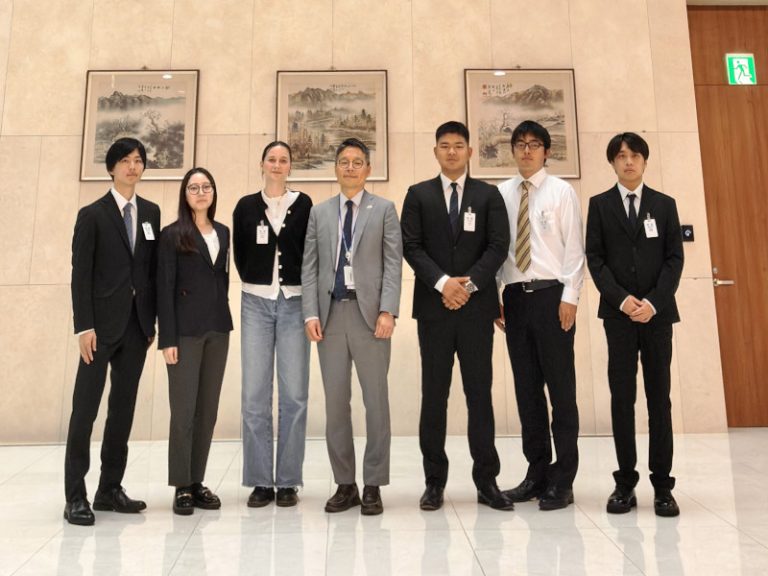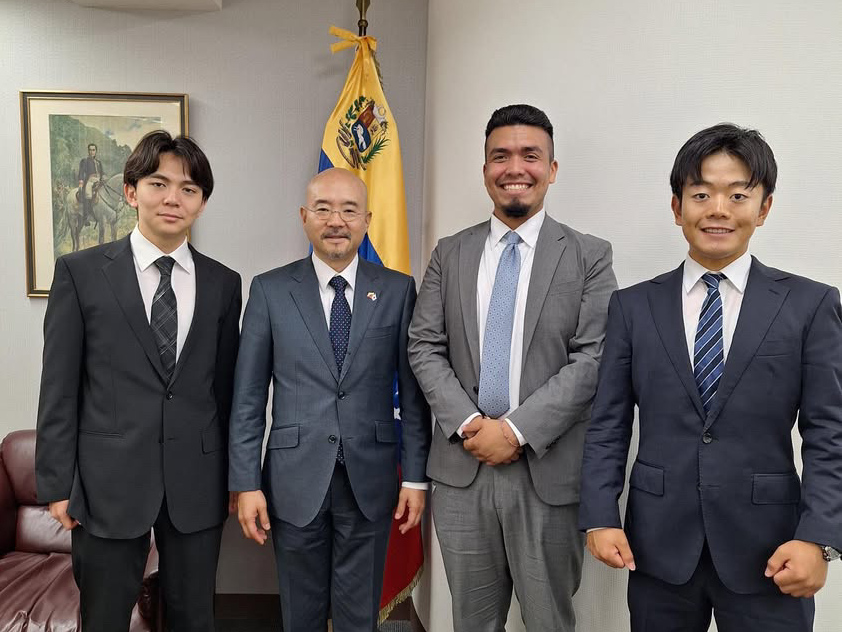[School of Political Science and Economics] UNNO seminar conducts interviews with embassies and overseas Japanese companies
Aug. 25, 2025

A photo taken during a hearing at the Embassy of the Republic of Korea in Japan
From April to July, UNNO Motoo seminar of the School of Political Science and Economics conducted interviews with embassies in Japan, the Embassy of Venezuela, the Embassy of Ecuador, the Embassy of Chile, the Embassy of the Republic of Korea, and four Japanese companies that have expanded overseas regarding the tariff measures taken by U.S. President Trump. The survey was conducted in Japanese, English, Spanish and Korean, with each session lasting approximately one hour. The industries of such companies included four sectors: steel, automotive parts, ocean shipping, and aircraft parts.
In this seminar, students deepen their understanding of negotiation and intercultural communication by reading overseas literature and conducting fieldwork on the theme of “Trump’s tariffs and negotiations.” As part of the seminar activities, they conducted interviews focusing on countries that have been subject to additional tariffs imposed by the U.S. and Japanese companies operating overseas that will be affected by these tariffs. The seminar will continue to conduct interviews to examine Trump’s leadership style and communication styles as seen through his tariff measures.
In this seminar, students deepen their understanding of negotiation and intercultural communication by reading overseas literature and conducting fieldwork on the theme of “Trump’s tariffs and negotiations.” As part of the seminar activities, they conducted interviews focusing on countries that have been subject to additional tariffs imposed by the U.S. and Japanese companies operating overseas that will be affected by these tariffs. The seminar will continue to conduct interviews to examine Trump’s leadership style and communication styles as seen through his tariff measures.

A photo taken during a hearing at the Embassy of Venezuela in Japan
Comment from a seminar student who participated in this survey
Through this interview survey, it became clear that leadership and cross-cultural understanding are closely related. I learned that the qualities required of a leader: motivating people with strong convictions rather than forcing them to act; listening humbly to the opinions of others, broadening one’s horizons, and continuing to learn new things; and not judging things based on stereotypes but always analyzing reality calmly and responding appropriately, are all common to cross-cultural understanding.
At the same time, I learned that such qualities are not only correct answers, and that it is also important to continuously question what constitutes the optimal leadership style for oneself.
In addition, this survey was conducted mainly in English by forming cross-cultural teams of Japanese students and international students. I feel that cross-cultural understanding is a universal skill that goes beyond nationality and applies to all human relationships in everyday life. I will continue to explore the optimal leadership styles and methods of cross-cultural collaboration and deepen my understanding through practical application.


